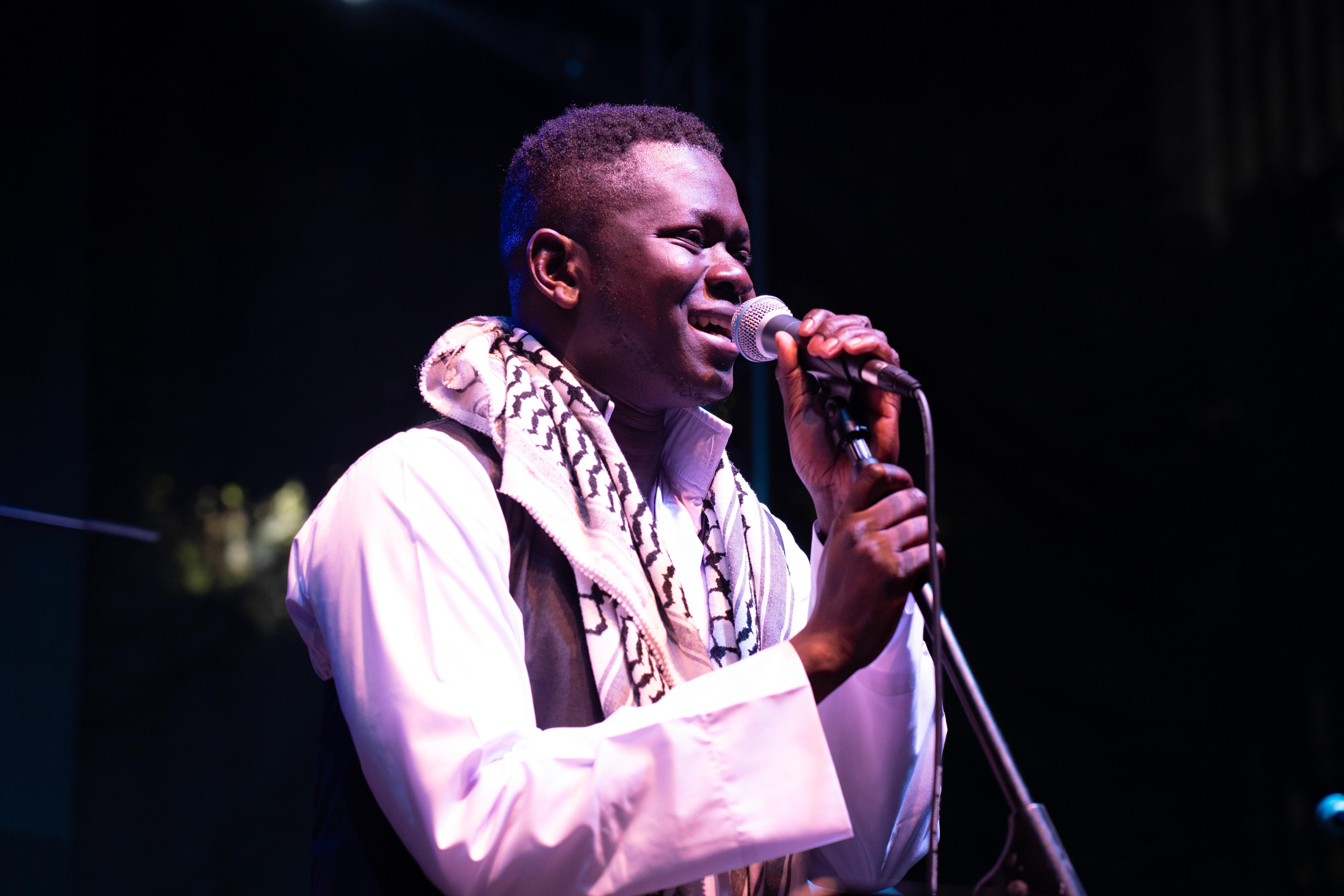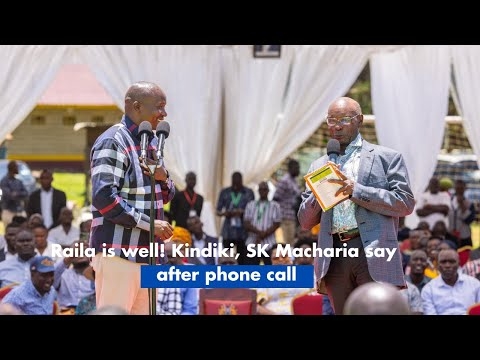

On a starry night in Nairobi earlier this month, Sudanese singer Mohamed Abbo, known by his artiste name Wad Abbo, stood beneath the lights of Alliance Francaise’s concert stage to launch his first album.
His voice, rich and stirring, carried verses in Sudanese Arabic and Darfuri dialects. The audience of Sudanese, Kenyans, other Africans and Europeans responded in kind with swaying, clapping and sometimes singing along.
He sang for peace in Sudan, repeating lines that felt like prayers. “When hardship passes, peace comes to us. No matter how stubborn the quarrels, we live as dear ones.”
In another song, steeped in Darfuri rhythms, he called out, “when peace comes to us, welcome. If autumn comes, prepare the seeds. If harvest time comes, it will find us waiting.”
The songs evoked both memory and longing, drawing his listeners into the deep emotional terrain of exile and resilience.
For Abbo, this moment was more than a debut. It was an act of survival. The ongoing war in Sudan forced him to flee to Kenya, leaving behind his home, community and bandmates.
In Nairobi, he pieced together a new group of six musicians, four of them Kenyan, and resumed his cultural and musical initiative, the Nogara Project, rooted in the belief that Sudan’s diverse cultural and musical heritage can serve as a tool for dialogue, peace and healing.
He began his professional journey in music and culture in 2018, and his vision and creativity earned him the Prince Claus Seed Award in 2022.
Abbo’s music is multilingual and multi-dialectal, weaving together strands from across Sudan. His goal, he says, is to help Sudanese rediscover one another and to share this richness with the world.
Since April 15, 2023, Sudan has been engulfed in yet another devastating war, and Abbo feels a deep duty as a musician to respond.
“Music is my way of being a peacemaker,” he says. “It reminds us of how we lived together before, of what we share, of the values that hold us as one people.”
WHEN PEACE COMES
His debut album, When Peace Comes, is a tapestry of 14 songs drawn from different regions and languages of Sudan.
Some are Abbo’s own compositions, others are adaptations of traditional songs, but all revolve around a call for peace. The title track carries a particularly personal resonance.
Written by a man from Darfur who spent nearly 20 years in IDP camps, the song is a dream of return: a vision of going back to the farm, the village, the land that embodies identity and belonging.
“Before he could return, a new war broke out,” Abbo recalled. “That story struck me deeply because I grew up near Otash camp in Nyala, where he lived. Now I am also displaced.
“This song reminds me, and reminds all of us, that when peace comes, we will return, meet our scattered neighbours and friends, and rebuild our country.”
Abbo’s connection to displaced communities did not begin with the current war. As a child in Nyala, during the Darfur conflict, he joined the Friendship Band, a local group that performed in camps surrounding the city, such as Otash, Beliel, Kalma and others.
They sang and acted for displaced families, using performance to shift the heavy atmosphere of exile. “We wanted them to feel part of Nyala, to feel accepted, to express themselves freely,” he recalls.
Those early experiences taught him that music could be more than entertainment; it could be a tool for healing.
That mission continues today. Recently, Abbo held two concerts in the Kiryandongo refugee camp in Uganda. He plans to extend his performances to camps in other neighbouring countries.
“This is my duty as an artiste,” he says. “To sing for my community, for those who most need joy, to make them feel remembered.”












